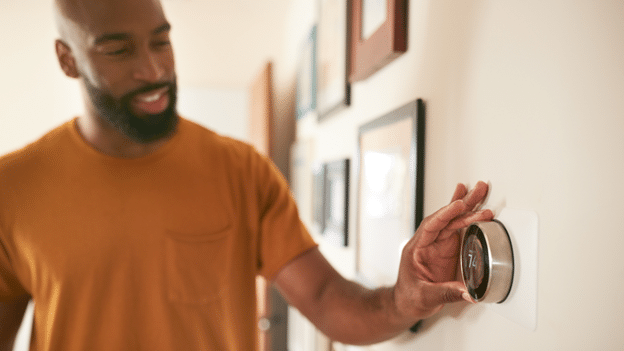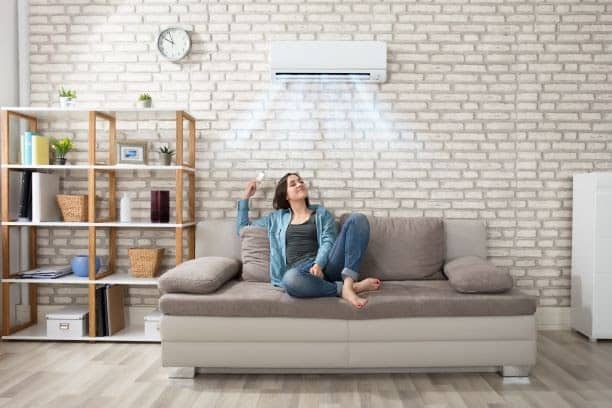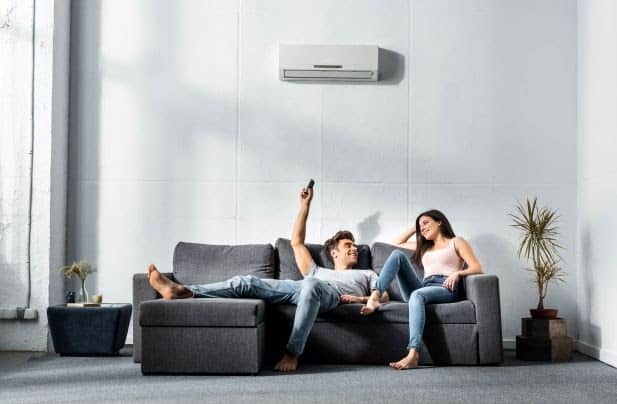Should You Turn the AC Off When Leaving the House?
When saving energy and reducing our electricity bills, one of the most commonly debated topics is whether or not should you turn the AC off when leaving the house. Some people believe that leaving the air conditioning system on at a higher temperature setting is more efficient than turning it off completely, while others argue that turning it off is the best way to save energy. In this blog, we’ll examine both sides’ arguments and explore the best course of action.
The argument for leaving the AC on
One of the main arguments for leaving the AC on when you leave the house is that it takes more energy to cool down a hot house than it does to maintain a consistent temperature. If you turn your air conditioner off completely, your home will heat up, and your AC will have to work harder to cool it back down when you return. In addition, some people argue that leaving the air conditioner on can help prevent mold and mildew growth, as it helps to circulate air and reduce humidity levels.
Another reason why people choose to leave their AC on when they leave the house is because it can help keep pets and plants cool and comfortable. For example, if you have pets left alone in the house during the day, leaving the AC on can help prevent them from overheating and dehydrating. Similarly, if you have indoor plants requiring a cooler temperature, leaving the systen on can help maintain the right environment.
The argument for turning the AC off
On the other hand, some people argue that turning off the AC is the best way to save energy and reduce electricity bills. According to the U.S. Department of Energy, turning off your AC when you leave the house can save you up to 10% on your annual electricity bill. This is because your AC is one of the biggest energy consumers in your home, and leaving it on unnecessarily can lead to higher energy bills and increased carbon emissions.
In addition, turning off your AC can extend the lifespan of your unit and reduce the need for repairs. When your AC constantly runs, it puts more strain on the system and can lead to breakdowns and malfunctions over time. Turning it off when you leave the house can reduce the wear and tear on your AC and help it last longer.
The best course of action
So, should you turn your air conditioner off when you leave the house? The answer depends on several factors, including the climate you live in, the efficiency of your AC unit, and your personal preferences. For example, if you live in a hot and humid climate, leaving your AC on at a higher temperature setting may be more efficient when you leave the house. However, turning it off may be the best action if you live in cooler weather or have a highly efficient AC unit.
In addition, you can also consider investing in a programmable thermostat, which allows you to set a schedule for your AC to turn on and off throughout the day. This way, you can ensure that your AC only runs when needed and turn it off when you leave the house.
The decision to turn off your air conditioner when you leave the house depends on several factors and personal preferences. While leaving your AC on at a higher temperature setting can help maintain a consistent temperature and prevent mold growth, turning it off can help save energy and reduce the need for repairs. By considering your needs and investing in a programmable thermostat, you can find the best course of action for your home and wallet.
Looking for reliable HVAC repair and installation services in the Tampa Bay area? Look no further than Air Rescue! Our team of 75 licensed and expertly trained technicians is dedicated to providing you with the best service and pricing guarantees, ensuring your 100% satisfaction every time. To schedule service, call 813-358-3431 today!








